If you’ve ever washed out a wound with saline instead of tap water or requested an x-ray for lower-back pain, you’re a fool. According to a list drawn up by the Academy of Medical Royal Colleges, both practices are pointless; doctors only go along with them because they’re terrified that you will turn on them if they don’t. The list of useless procedures runs to 40 items, covering everything from wrist fractures to palliative chemotherapy, and has been released in the hope that medical professionals will eventually reconsider using the treatments.
But medicine isn’t the only area where we’re coerced into taking action unnecessarily. Here are 40 more things you shouldn’t bother doing.
1 Eating five portions of fruit and vegetables a day
The British government advises that we each eat five portions of fruit and vegetables a day. In Denmark, it’s six. In Australia, it’s seven. In 2014, campaigners tried upping it to 10. Just eat some vegetables and be done with it.
2 Taking vitamin C supplements
If you feel a cold coming on, it’s pointless to reach for the vitamin C tablets. Study after study has concluded that – unless you live in a frozen wilderness, smoke an incredibly large number of cigarettes or subject yourself to extreme physical stress on a regular basis – vitamin C won’t do anything.
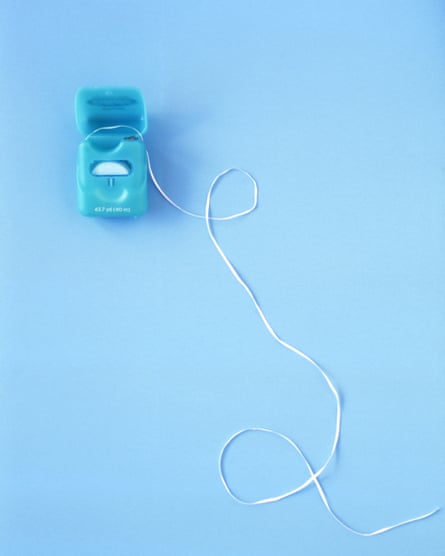
3 Flossing
In August, the British Dental Association’s scientific adviser declared flossing to be pointless, adding that all floss-based studies of the past 25 years have been of “very low quality”. If you’ve never flossed your teeth, you were right all along. Go out there today and flash the world that foul-smelling, grey-green smile of yours. You’ve earned this.
4 Washing your jeans
The sensible thing to do with dirty clothes is to wash them. But the CEO of Levi’s has advised that you should never do so with jeans, because washing them makes them look bad. Instead, why not try rubbing off stains with a toothbrush, leaving them to air outside and never having any friends because you smell of dirt and sweat?
5 Having a landline
No one calls your landline telephone. You never call anyone’s landline. No one will have a landline at all 10 years from now. They exist purely to complicate the act of changing your broadband provider.
6 Drinking eight glasses of water a day
You don’t need to drink eight glasses of water a day. The figure first appeared in a recommended dietary allowance guide in the US 70 years ago, and it doesn’t take into consideration your age, your height, your weight or your activity level. Instead, just drink until your wee is no longer dark. That means you’re hydrated.
7-14 Overusing your fridge
Don’t put tomatoes in your fridge, because it stops them tasting of anything. Don’t put potatoes in your fridge, because it will muck up their starch and make them taste funny. Don’t put bread in the fridge, because it will go stale faster. Don’t put onions in the fridge, because they need to be well ventilated. Don’t put bananas in the fridge, because they’re tropical fruits. Don’t put avocado in the fridge, because they will never ripen. Don’t put ketchup in the fridge, because it doesn’t need to be kept in the fridge. Don’t put eggs in the fridge, because I saw Stephen Fry say on TV once that he didn’t, and he seems like a man who’s got his stuff together.
15 Washing your hair every day
Nobody in the history of the world washed their hair as much as we do now. Daily washing is thought to be unnecessary. Every couple of days is good, or less if your hair is curly. Or never at all, if you want people to avoid you like the plague.
16 Taking a polling card with you to vote

Obviously, democracy is rigged and one vote never changes anything anyway. However, if you do go out to vote, leave your polling card at home. In Britain, if you’re on the electoral register, you don’t need it.
17 Peeling vegetables
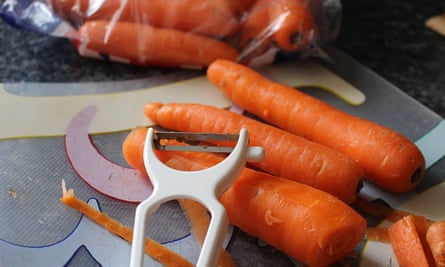
Most of a vegetable’s insoluble fibre is in its peel. Stop throwing away delicious fibre, you weirdo.
18 Owning more than 10 items of clothing
A Canadian pilot called Matt Souveny recently spent a year getting by on just one pair of trousers, one pair of shorts, a shirt, two T-shirts, a sweatshirt, trainers, boots and a belt. This proved that people own too many clothes, or something. Anyway, look, you should do it.
19 Communicating with words
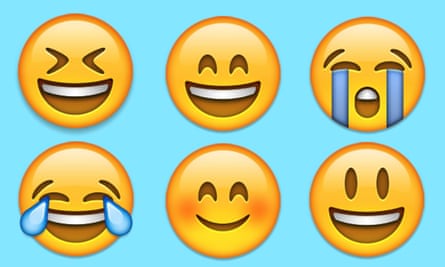
Still using words? Please. Emoji is now the fastest-growing language in history, thanks to its ability to bypass international barriers. Whichever way you look at it, that’s pretty smileyface smileyface thumbs-up dancing-lady smileyface.
20 Pressing the ‘close door’ button in a lift
As tempting as it is to hammer the “close door” button in a lift when you see your arch-enemy approaching, there’s no point. It’s most likely a placebo button, designed to give you the illusion of control and stop you remembering that you’re in a metal box dangling from a wire 45 metres in the air.
21 Ordering anything in the top-right-hand corner of a menu
Menu design is a skill rooted in complex psychology. Knowing that your eye will naturally fall on the top-right corner of the menu, this is where restaurateurs often place their most profitable items. Why not help run these crooks out of business by ordering from the bottom of the menu, where you’ll find items with smaller margins?
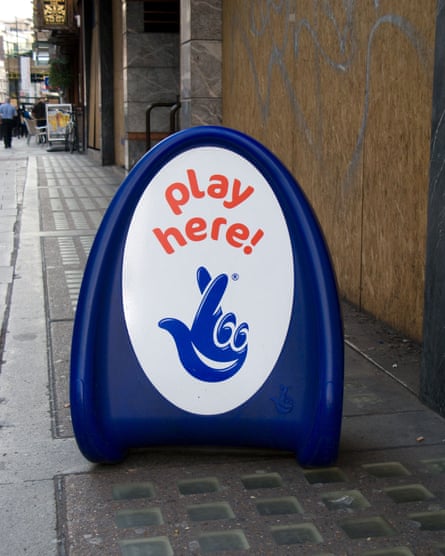
22 Discarding out-of-date food
When food reaches its sell-by date, that doesn’t mean it suddenly becomes poisonous – it means that the supermarket has guessed this stock should be rotated. Unless it smells terrible or is covered in mould, you’re probably fine.
23 Playing the lottery
You’re far more likely to be struck by lightning twice than to win the UK’s Lotto draw. Just give up and accept your miserable fate.
24 Taking toothpaste on holiday
If you must buy toothpaste (see 30-34), stop wasting your luggage allowance on it. There are shops where you’re going. Buy toothpaste there.
25 Napping
Last month, a doctor from the University of Tokyo claimed that regular, hour-long, daytime naps can boost the risk of type 2 diabetes by up to 45%. So, basically, it’s been nice knowing you. (That said, many studies have extolled the benefits of a quick snooze.)
26 Pressing C on a calculator multiple times
It’s called the clear button, not the incremental clear button. Stop bludgeoning it every time you finish doing a sum.
27 Buying antivirus software
Earlier this year, the US Department of Homeland Security’s computer-emergency readiness team issued a warning about a popular brand of antivirus software after finding that it contained “critical vulnerabilities”. Most browsers now have content-verification systems that do the job better.
28 Stretching before exercise

It’s unlikely to improve performance or minimise injury. All it does is make you look like a bendy, Lycra berk.
29 Standing in line at the departure gate at the airport
You have a ticket with a designated seat and aeroplanes are uncomfortable. It won’t take off without you. Calm down.
30-34 Buying expensive products
Why buy air freshener when you can just fill an orange peel with salt? Why use rinse aid in a dishwasher when you can just use white vinegar? Why buy laundry detergent when you can just grate some soap and put it in a jar with washing soda? Why buy deodorant when you can just rub coconut oil and baking powder on your armpits? Why buy toothpaste when you can basically wipe your homemade deodorant on your teeth?
35 Filing a tax return
If you owe less than £3,000 in tax, it’s often unnecessary to fill in a self-assessment sheet. Just ring HMRC and settle up over the phone instead.
36 Visiting a travel agent

Use the internet like everyone else.
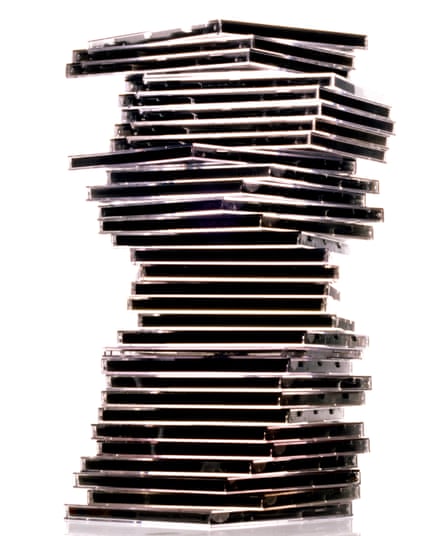
37 Learning to drive
The driverless car revolution is only a few years away. You can get the bus until then.
38 Learning how to tell the time on analog clocks
“Hey, Siri, what time is it? Also, why did I waste so much of my childhood working out how dials work?”
39 Maintaining a CD collection
CDs are expensive and bulky. I have no idea why I’m moving house with all of mine. You’re right, I’ll just bin them.
40 Reading the news
According to Professor Graham Davey, consuming a non-stop torrent of negative news stories can significantly contribute to the deterioration of your mood, and to the development of depression, anxiety, stress and PTSD. This article does not count as negative news and has therefore saved your life. Please thank me accordingly.

Comments (…)
Sign in or create your Guardian account to join the discussion